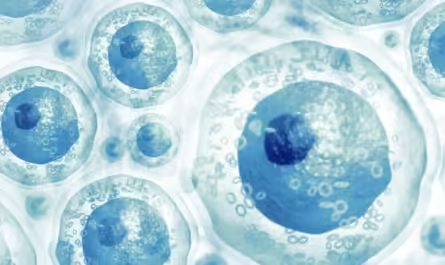Researchers from Duke-NUS Medical School have made a significant breakthrough in understanding why some pancreatic and colorectal cancers do not respond to Wnt inhibitors, a new class of cancer drugs that show promise in treating these types of cancers. In a study published in Science Advances, the scientists identified a key resistance mechanism that could potentially serve as a target for new cancer therapies and a screening tool to identify patients who may not benefit from Wnt inhibitors in the future.
Pancreatic and colorectal cancers often exhibit uncontrollable growth due to mutations that hyperactivate the Wnt pathway, a critical biological pathway regulating cell growth. More than 80 percent of colorectal cancers and certain pancreatic cancers exploit the Wnt pathway to drive aggressive tumor growth.
Wnt inhibitors, which aim to block the hyperactive Wnt pathway, have emerged as a potential treatment strategy for these cancers. While some patients have shown positive responses to Wnt inhibitors, the researchers have uncovered intrinsic resistance mechanisms in other cases.
Dr. Zhong Zheng, the lead researcher of the study, explained that despite the promise of Wnt inhibitors, a subset of patients exhibit resistance to these drugs. By investigating colorectal and pancreatic cancers with hyperactive Wnt pathways, the researchers identified a second mutation in the FBXW7 gene that confers resistance to Wnt inhibitors.
FBXW7 mutations, which occur in approximately 15% of colorectal cancers, alter the behavior of cancer cells, making them unresponsive to Wnt inhibitors. This discovery not only serves as a potential biomarker for identifying resistant tumors but also opens up new possibilities for targeted cancer therapies.
The researchers emphasized the importance of predicting drug resistance for personalized oncology. By targeting alternative pathways activated by the FBXW7 mutation, new treatment strategies could potentially overcome drug resistance in these cancers.
The study also revealed that Wnt inhibitor-resistant tumors may be susceptible to an experimental drug called dinaciclib. The researchers plan to further investigate the efficacy of dinaciclib alone and in combination with other agents for treating these resistant cancers.
Prof. David Virshup, the senior author of the study, highlighted the translational nature of the research conducted at Duke-NUS, emphasizing the importance of understanding the diversity of cancers to provide personalized and effective treatments for individual patients.
Overall, the findings shed light on the mechanisms of resistance to Wnt inhibitors in pancreatic and colorectal cancers, offering new avenues for developing tailored and potent treatment strategies for patients with drug-resistant tumors. The ultimate goal is to translate these research findings into innovative therapies that address the unique challenges posed by resistant cancers, bringing personalized medicine one step closer to reality.
*Note:
1. Source: Coherent Market Insights, Public sources, Desk research
2. We have leveraged AI tools to mine information and compile it.



